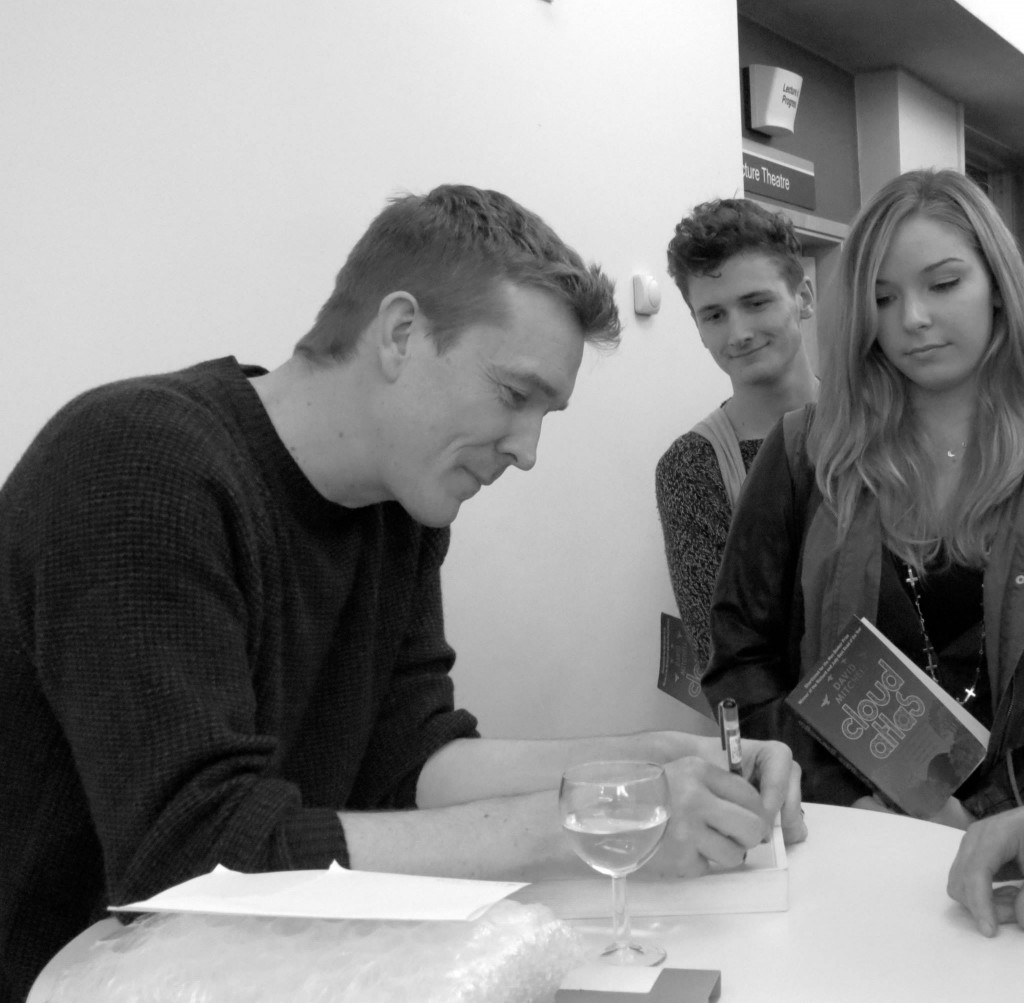On Thursday 3rd of October the School of English alumnus and twice Booker nominated author David Mitchell gave a talk to welcome back stage 2 and 3 students. Students and staff from across the School and university enjoyed an hour and half talk including readings from unpublished works and an extended and exuberant question and answer session. Professor Jan Montefiore, who not only taught him during his time here but has also been a life-long friend, introduced David’s talk. Her warm introduction recalled an inquisitive student who penned wild stories to entertain her son whilst he babysat at her house.
David Mitchell, who studied literature in the School of English from 1987 to 1991, has enjoyed great success as an author since leaving Kent. His first novel Ghostwritten was published to great critic acclaim in 1999 and won the John Llewellyn Rhys Prize and was shortlisted for the Guardian First Book Award. Both of the novels that followed, number9dream (2001) and Cloud Atlas (2004), were to be shortlisted for the Man Booker Prize. Students had the opportunity to meet David at a book signing following his talk.
Emma Shelton, third year English Literature student and Features Editor of the university newspaper Inquire, interviewed David about his time as a student. David reminisced about his experiences and considered what it was like to come back after such a long time:
“For a long time I had a “you shouldn’t go back” kind of philosophy about my home town, where I grew up and even where I went to college here. Perhaps that’s the same healthy propulsive force that you have when you are younger, or maybe we are hard wired that way, to make sure you go out into the world and do your own thing. Then middle age comes knocking on the door, and you’re actually rather curious about where you’re from, not in a sentimental way but you sort of feel like it’s rather healthy to go back and have a look at where you were as a kid, a teenager, a student, and see if it’s changed and how it hasn’t. It’s good to go back and see where you’re from. There’s a sense of closing a circle.”
Emma’s full interview, including a podcast, is available on the Inquire website.

